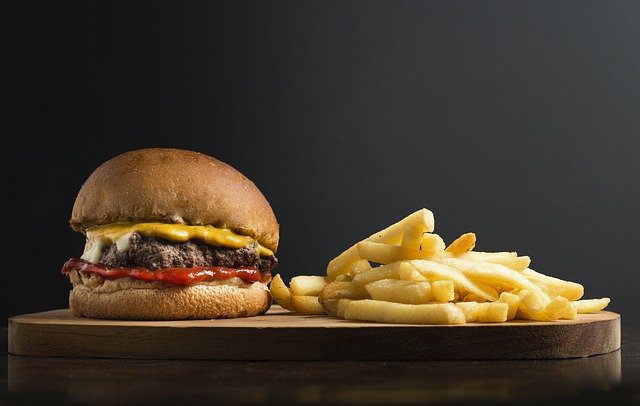How to Effectively Stop Stress Eating and Avoid Weight Gain
Have you ever found yourself sitting on the couch with a carton of ice cream and a spoon? Maybe this is your nightly ritual? Have you thought that the reason you’re sitting there with a bowl of delicious guilt is because of stress eating or emotional eating? It very well could be!
Let’s face it, you’re stressed. There are so many factors that come into play from stress at work, stress from kids, stress from relationships, and even environmental stress. These common causes could be the root of your stress eating. But you’re in luck. In this article, you’re going to find several ways to help better manage your stress and stop stress eating so you don’t end up in a caloric surplus every day and wind up gaining weight.
The strategies listed below are common strategies that you can implement and see what works for you with reducing your stress levels. If one doesn’t work or you’re simply not a fan of it, try another. The key is to find what works so you can stop stress eating once and for all. That being said, once you find what works, be sure to implement it into your daily life or you may find your stress levels are rising again and you’re grabbing that spoon and on your way to the freezer.
Table of contents
What is Stress Eating?
Stress eating, also known as emotional eating, refers to the habit of consuming food in response to emotional triggers rather than physiological hunger. People often turn to food as a way to cope with stress, anxiety, sadness, boredom, or other emotions. Instead of eating in response to the body’s natural signals of hunger and fullness, stress eaters use food as a way to manage their emotions and alleviate negative feelings.
Stress eating can involve the consumption of comfort foods, which are often high in sugars, fats, and calories. These foods may provide temporary relief and a sense of comfort, but they don’t address the underlying emotional issues and can contribute to unhealthy eating habits and weight gain.
Several factors can contribute to stress eating, including:
- Stress and Emotional Triggers: High levels of stress or emotional upheavals can lead individuals to seek comfort in food.
- Habitual Responses: Over time, people may develop habits of turning to food in response to specific emotions, creating a cycle of emotional eating.
- Cultural and Social Influences: Cultural and social factors can contribute to the association between certain emotions and specific types of food.
- Lack of Coping Strategies: Some individuals may lack effective coping strategies for managing stress or emotions, leading them to turn to food as a quick and accessible solution.

Addressing stress eating often involves developing alternative coping mechanisms, such as practicing mindfulness, engaging in physical activity, seeking support from friends or professionals, and addressing the underlying emotional issues. It’s important for individuals to be aware of their eating patterns and seek healthier ways to manage stress and emotions to promote overall well-being.
Why is Stress Eating Bad?
Stress eating can have negative consequences on both physical and mental health. Here are several reasons why stress eating is considered bad:
- Unhealthy Food Choices: Stress eating often involves consuming high-calorie, sugary, and fatty foods known as comfort foods. These choices may lead to weight gain and contribute to poor nutritional intake, increasing the risk of health issues like obesity, diabetes, and heart disease.
- Overeating: Stress eating may cause individuals to eat beyond their body’s actual hunger cues. This can lead to overconsumption of calories, which can contribute to weight gain and related health problems.
- Temporary Relief, Long-term Issues: While stress eating may provide temporary emotional relief, it does not address the underlying causes of stress or emotional distress. Over time, relying on food as a coping mechanism can perpetuate the cycle of emotional eating and prevent the development of healthier coping strategies.
- Negative Impact on Mental Health: Emotional eating may contribute to feelings of guilt, shame, or frustration, especially if individuals are not satisfied with their eating habits. This can negatively impact mental health and self-esteem.
- Impaired Stress Management: Rather than effectively managing stress through healthy coping mechanisms, stress eaters may turn to food as a primary source of stress relief. This can hinder the development of more adaptive stress-management strategies.
- Increased Risk of Chronic Conditions: Over time, the combination of poor eating habits, overconsumption of unhealthy foods, and potential weight gain associated with stress eating can increase the risk of chronic health conditions, such as cardiovascular diseases and metabolic disorders.
- Impact on Digestive Health: Eating when not truly hungry can disrupt normal digestion. Consuming large amounts of food quickly, especially comfort foods, may lead to digestive discomfort and issues such as indigestion or acid reflux.
What Are Some Tips to Eliminate Stress Eating?

Try the strategies below to help eliminate stress eating:
1. Go to the Gym and Take Out Your Stress Eating on the Weights
One of the best ways to manage your stress and prevent yourself from stress eating is by hitting the gym and getting in a great workout. Weight training is an effective way to take out your frustrations (whatever they may be).
The good news is, hitting the weights becomes a win-win as post-workout you can get or make yourself a delicious protein shake to curb your appetite and help kickstart the recovery process.

2. Make Sure You Are Eating Frequent but Small Meals
What you need to remind yourself with this strategy is that you are to eat SMALL meals frequently. This isn’t an open invitation to hit McDonald’s seven times a day and grab a value meal each time.
Related Article: This ONE Food Won’t Cause You to Gain Weight
A small meal can consist of a nutrition bar, some chicken and vegetables, an apple with peanut butter, vegetables and hummus, a protein shake, a handful of nuts, Greek yogurt with some granola – whatever healthy option your creative mind can come up with.
One strategy, however, is to make choices that include healthy fat and/or fiber. Both of these will help keep you full and satiated longer so you aren’t having any cravings between meals. Maintaining satiety by having multiple small meals throughout the day is a great way to prevent stress eating as you won’t have periods where stress eating can sneak in and you choose unhealthy options.
3. Get Enough Sleep Each Night
The recommended number of hours you should sleep each night is seven. If you aren’t getting a minimum of seven hours of sleep each night, you’re not allowing your body to fully recover from not only your workouts but also the daily stress that we find weighing down our lives.
If you aren’t getting enough quality sleep, it could be causing stress eating during the day. Lack of sleep or sleep deprivation can raise cortisol levels in your body which throws off your hormones. One such hormone is ghrelin which is a hunger hormone. Add that on top of stress eating and it’s no wonder many find themselves gaining weight quickly.
Come up with a nightly schedule and stick to it. That may mean shutting down all of your electronics at 10pm and giving yourself an hour to unwind and decompress before your head hits the pillow. It’s also a great way to get everything ready for the next day.
Look at your schedule and when you need to wake up. If you need to be up by 7am each morning, be sure you’re in bed around 11:30pm to ensure you are asleep by midnight and can get at least seven hours of sleep.
Click here to continue reading…


*Disclosure: This article may contain affiliate links or ads, which means we earn a small commission at no extra cost to you if you make a purchase through these links. These commissions help support the operation and maintenance of our website, allowing us to continue producing free valuable content. Your support is genuinely appreciated, whether you choose to use our links or not. Thank you for being a part of our community and enjoying our content.
PLEASE CONSIDER SHARING THIS ON YOUR SOCIAL MEDIA TO HELP OTHERS LEARN MORE ABOUT THIS TOPIC. SIMPLY CLICK BELOW!

